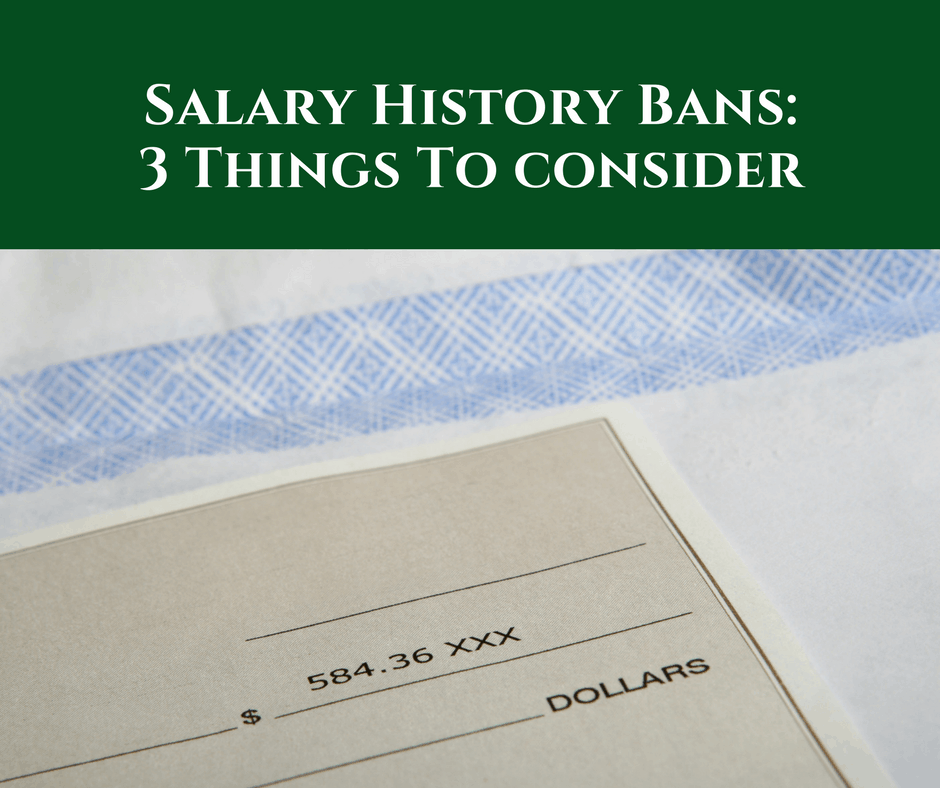Salary History Bans: 3 Things to Consider

In the past, it was common to provide information about past salary history when completing a job application. As an applicant, this might tend to give you a bit of pause–it’s hard not to wonder how providing a salary history could impact your future salary if you are hired. Will knowing your salary at your last job make a potential employer think you’re over or underqualified? Too expensive? Not expensive enough?
Increasingly, however, jurisdictions of varying sizes have taken to banning questions about salary history on employment applications. This has been done for a variety of reasons, many of which deal with the rights of employees to their personal information and the prevention of discrimination based upon past income.
Salary history bans can occur at the state, county, or local level, so it’s important to stay up-to-date on your area’s requirements. At the end of 2017, Albany County, New York, located near Alliance Risk Group’s headquarters, passed such a ban. The ban was set to take effect 30 days after its filing with the Secretary of State and impacts any company with more than four employees. Similar bans are popping up all over; New York City passed a salary history ban in late 2017, as well.
What does this mean for your company’s hiring process? Here are three things to consider.
- Does salary history really matter?
Employees take jobs at varying income levels for a multitude of reasons. If an applicant was making $10,000 less at their last job than the level at which you usually start employees, it could be because their spouse was a high-earner, or because they had recently changed careers. Similarly, an applicant might be looking to take on a new type of job, and might be willing to take a pay cut in the interest of trying something new. If you can’t offer the same compensation that they previously enjoyed, that doesn’t mean you should overlook them as a hire. Compensation decisions are complicated, so it might be that considering salary history is not always relevant when it comes to making a hiring choice.
- Does your background check company know the new rules?
While it should be the responsibility of your background investigation provider to stay in the know about things like new salary history bans, it can’t hurt to check up on your area’s laws and verify that your provider is following them.
- What application questions might be more revealing?
If you are no longer able to ask questions about past compensation due to state or local legislation, consider revamping your employment applications to include questions of greater relevance to the positions you’re looking to fill. Brainstorm with employees in similar roles as well as with your HR department to determine what information might be more revealing about new employees. What questions could give you the most information about an individual? Try using those instead (provided they comply with the regulations of the FCRA and other employment laws).
Alliance Risk Group. is a full-service investigative firm that conducts best practice background checks in a variety of industries, regardless of your company’s size or geographic location. Contact us with questions about your area’s rules on salary history in employment applications!
Are you interested in learning more about background investigations? Schedule a no-cost webinar to see if our services might be right for you!
We invite you to browse our library of blog posts and whitepapers to gain a better understanding of the value background investigations could have for your organization.
